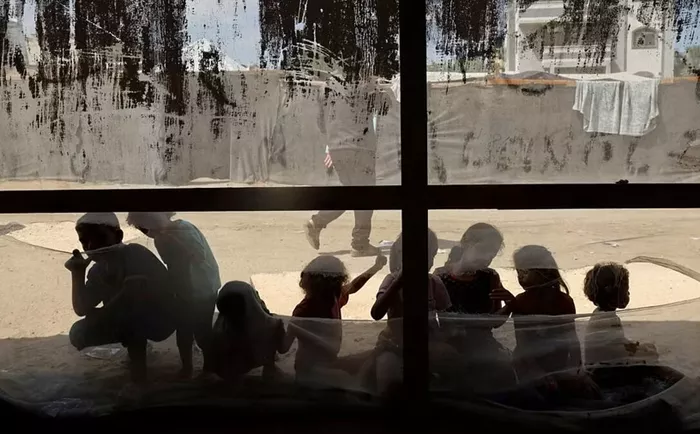DEIR AL-BALAH, Gaza — In Gaza, where basic supplies are scarce, girls are resorting to cutting their hair due to a shortage of combs. Pediatrician Lobna al-Azaiza advises them to trim their hair when they come to her clinic without access to grooming tools.
The ongoing blockade by Israel, coupled with ten months of war, has severely restricted essential supplies. Gaza faces shortages of shampoo, soap, period products, and cleaning materials. The collapse of waste collection and sewage treatment has worsened conditions, leading to a rise in contagious diseases like scabies and fungal infections.
Dr. Azaiza reports an increase in skin conditions due to overcrowding, intense heat in tents, sweating, and inadequate bathing water. “The most common issues we see are skin rashes and diseases linked to these factors,” she said.
Previously, Dr. Azaiza worked at Kamal Adwan Hospital in Beit Lahia. The hospital is now cut off from the southern part of Gaza due to ongoing conflicts. Despite these challenges, she continues to treat patients from a tent clinic she established. This clinic, initially intended for children, now serves entire families displaced from their homes.
The cost of medications has soared; a simple burn ointment now costs 200 shekels ($53). International aid has been significantly reduced since Israel took control of the Rafah border crossing from Egypt, deepening the humanitarian crisis.
Israel asserts it is not responsible for delays in humanitarian aid, placing the responsibility on the UN and other organizations. Dr. Azaiza believes the key to alleviating the crisis is reopening the border crossing to allow essential supplies to enter. “The border crossing must be opened to bring in effective medications. The current ones are ineffective against the skin diseases we are seeing,” she stated.


